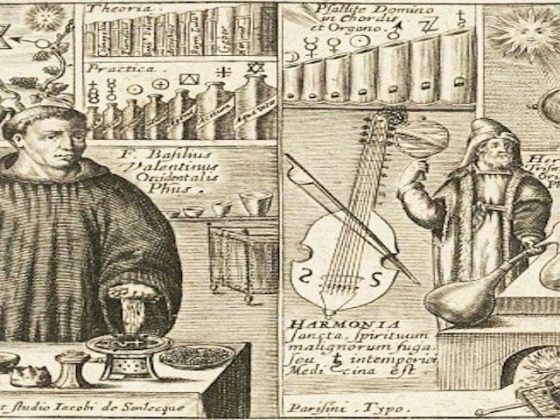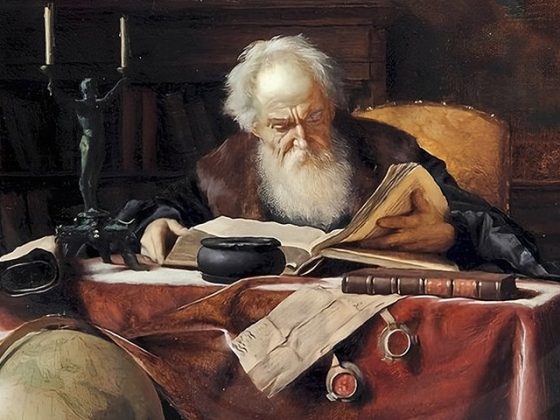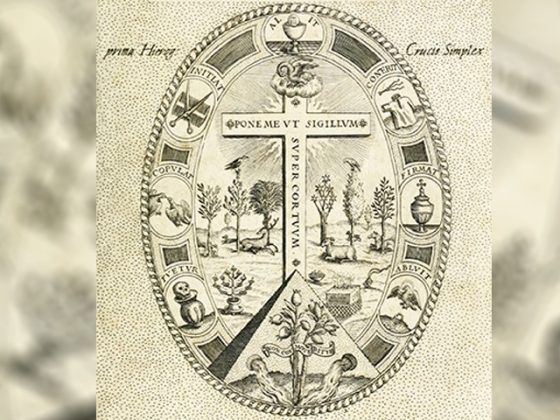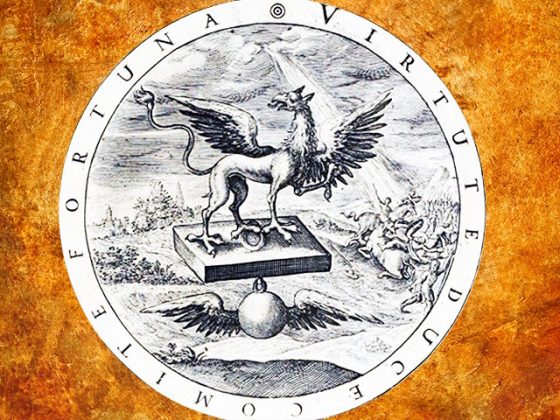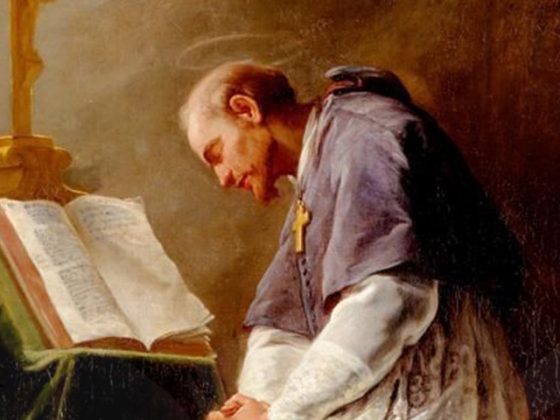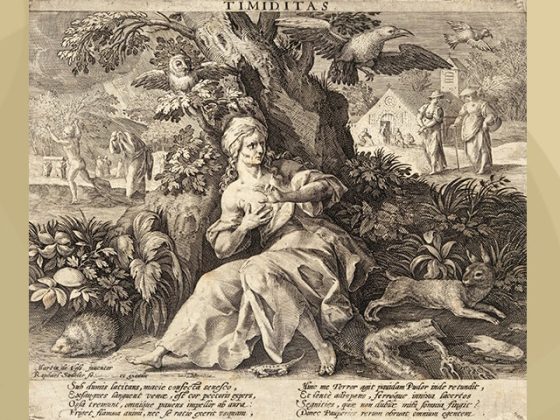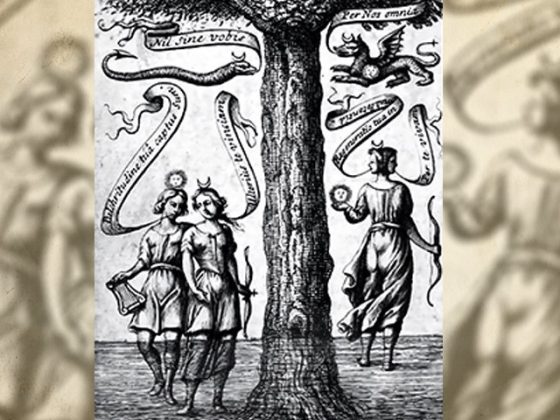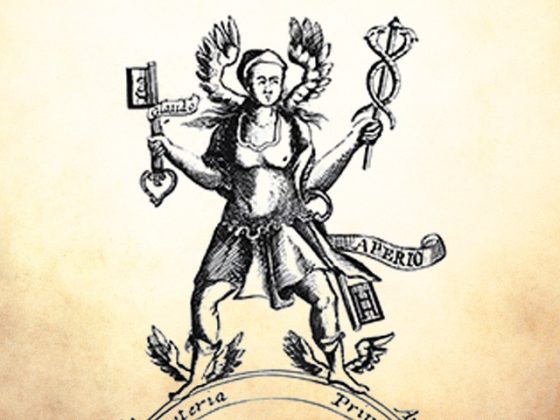The cover depicts Basil Valentine and Hermes Trismegistus with alchemical and musical instruments; twelve woodcuts within the text that show alembics and various alchemical tools; an engraving by Senlecque with seven emblematic medallions and at the end an alchemical drawing in the form of a shield.
Clarifying concepts -Part Two-
Esteemed reader friends:
I send you these other answers for your reflection.
“Symbola divina & humana pontificum, imperatorum, regum” (Divine and human symbols of pontiffs, emperors and kings)
I am sending you an image that appears in the book Symbola divina & humana pontificum, imperatorum, regum ─’DIVINE AND HUMAN SYMBOLS OF PONTIFFS, EMPERORS AND KINGS’─ published in 1601 in Prague.
Dear Master, please allow me to ask you a few questions. Although these are things that you have already explained several times, it would help me to review and receive more food for thought from you.
We must mortify and decompose this earth, which amounts to killing the griffin and fishing the fish, or separating the fire from the earth, the subtle from the gross, “gently, with great skill and prudence”, as Hermes teaches in his Emerald Tablet.
The importance of sanctity
In this message I intend to send you some quotations by our beloved Guru, V.M. Samael Aun Weor, accompanied also by some others that I have poured into several of my works, on the Importance of sanctity.
“Timiditas” (Fear)
We could conclude the following about the two couples mentioned above: terror makes us flee, but modesty contains that impetus of fear, indolence limits action, but it has to stop when poverty, which is a consequence of indolence itself, forces us to act.
“Virtus unita fortior” (United virtue is stronger)
It is the frontispiece of a book published in 1690 in London and entitled Aphorismi Urbigerani. This engraving takes us back again to the study of the Sacred ARCANUM A.Z.F. and its alchemical concomitances.
The “I” of victimism is something that is born in the mind and then passes to the emotional center, which transforms it into us being people who suffer… The “I” of victimism makes us feel that we are carrying a cross…, a utopian cross, because it makes us feel self-sacrificing. And, of course, they are all aspects of the same “I” of victimism.
This engraving, patient reader, brings to mind one of the most precious symbols of Alchemy; we refer to the Mercury of the sages.


